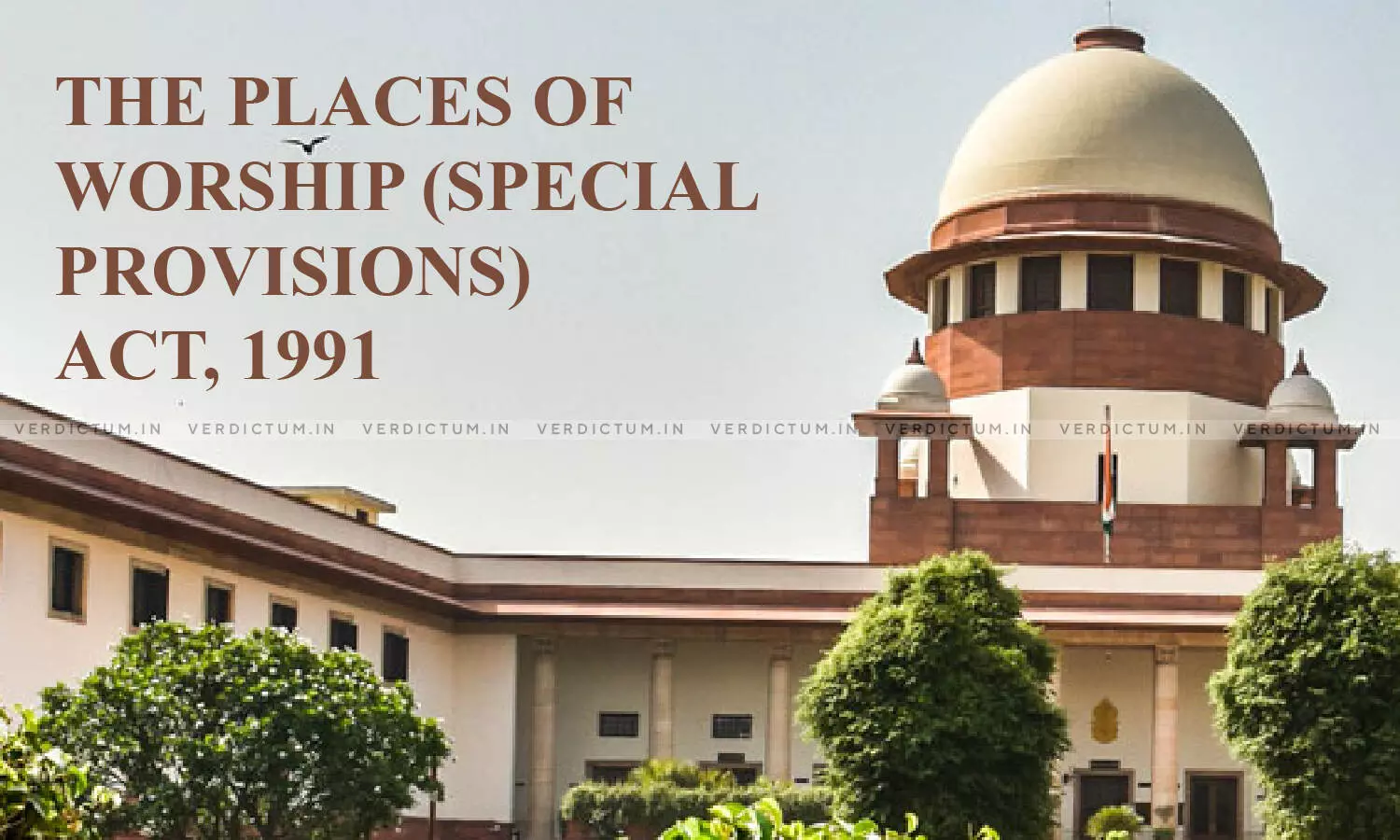
PIL Before SC Seeking Survey In All Mosques Over 100 Years Old, Protection Of Ancients Relics Therein
 |
|A Public Interest Litigation has been filed in the Supreme Court under Article 32 of the Constitution of India by Advocates Shubham Awasthi and Sapta Rishi Mishra seeking the issuance of directions to the Union of India to conduct survey on all the ancient and prominent Mosques which are over hundred years old in India with wells or ponds for Wuzu or with hidden passages which were built over Places of Worship of other religions for the discovery of hidden relics or deities and for alternative arrangements to be made for Wuzu for the time being.
The Petitioners have cited the example of the Gyanvapi Mosque in Varanasi where a Shivlinga was found inside a pond where the people would perform Wuzu.
The Petitioners have avered that, "Such practice is not only mischievous but also completely derogatory to the Hindu Religion and the billions of Hindus following Hindu Religion and Gods. The present Petition is being filed as an attempt to seek stoppage on the derogation being openly done by people of a particular religions and secure brotherhood among all. Enmity is borne out of disrespect, and mutual respect has the capacity to bring together the followers of different religions."
The Petitioners have also stated that, "the outcome of the present Petition would benefit all the Citizens of India who believe that their right to freedom of expression, profession of religion and amongst others in a right to living their life to the fullest as modern pillars of a participative democracy. This would also benefit in maintaining communal harmony and public order if in future any such relic is found in these places and would avoid unnecessary hatred by any organisation or even media houses."
The Petitioners have prayed for "the court to issue a writ of mandamus or any other appropriate writ directing the Respondents to come up with the plans on conduct of a confidential survey by the Archaeological Survey of India or any other governmental organisation with the aid of local authorities or any other administrative authority as the need may be."
The Petitioners have also prayed that directions be given for "shifting of Wudu/Wuzu from the ponds and wells in the mosques over hundred years old which are disputed to taps or modern faucets till the time, a confidential survey could be completed so that if any relic is discovered, unnecessary communal hatred and hurting religious sentiments could be avoided."
The Petitioners have prayed for directions for information sharing and support between different segments of the government agencies and bodies for tackling spread of hatred and disharmony in these kinds of disputes.
7th Petition Challenging The Places of Worship (Special Provisions) Act, 1991
Another petition has been filed before the Supreme Court by Swami Devkinandan Thakur Ji challenging the validity of Sections 2, 3 and 4 of the Places of Worship Act 1991.
He has contended that the provisions not only violates Articles 14, 15, 21, 25, 26 and 29 but also violate the principles of secularism which is an integral part of the preamble and the basic structure of the Constitution.
This is the 7th Petition before the Supreme Court challenging the vires of various provisions of the 1991 Act. The Supreme Court has issued notice on two petitions in 2021, whereas, the others are yet to be listed before the Court.
The latest petition states that, "Maxim ubi jus ibi remedium has been frustrated by the 1991 Act in pending suit, in which cause of action has arisen or continue and the remedy available to aggrieved person through court has been abolished thus violating the concept of justice and Rule of Law, which is core of Article 14. S. 2, 3, 4 not only offend right to pray practice propogate religion (Article 25), right to manage maintain administer places of worship (Article 26), right to conserve culture (Article 29) but also contrary to State's duty to protect historic places (Article 49) and preserve religious cultural heritage (Article 51A). S. 2,3,4 offend the basic dictum of Hindu law enshrined in Vedas, Purans, Ramayan, Geeta that Idol represents the Supreme Being and so its existence is never lost and deity cannot be divested from its property even by the Ruler or King. Therefore, Hindus have fundamental right under Article 25-26 to worship the deity at the place 'It' is, utilize the deity's property for religious purposes. Moreover, Pilgrimage is a state subject [Entry-7, List-II, Schedule-7] hence Centre neither can restrain Hindus Jains Budhists Sikhs to take over the complete possession of their places of worship and pilgrimage through judicial process nor can make law to abridge their rights and particularly with retrospective effect."